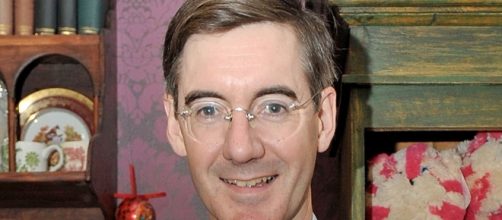It is rather tragic that the Conservatives' fortunes under Theresa May have dramatically changed since she became Prime Minister last July. From recruiting 50,000 new members last June, a stunning by-election victory in Copeland in February and opinion polls predicting a Tory landslide, a supply-in-confidence agreement with the DUP is not what many commentators expected.
'The Tories need another Thatcher.'
In 1974, Edward Heath called a snap election, asking the country which governs them. The electorate said in response at the time: 'Not you.' What followed was a hung parliament with Labour's Harold Wilson becoming prime minister.
This year's general election delivered a hung parliament, too, when Mrs. May asked the same question. However, the Tories remain in power. She has become as unpopular as Mr. Heath did then, causing the Conservatives to turn to Mrs. Thatcher to change their fortunes in 1975. And another parallel to 1974 is that the Tories need another Thatcher to improve the party's prospects beyond 2017 now, more than ever.
The winning formula for the Conservatives is a joint ticket with Jacob Rees-Mogg as prime minister and Andrea Leadsom as chancellor. Both of them are authentic politicians and true Thatcherites/Brexiteers. Once Britain leaves the EU, we need a leader who will embrace the many opportunities Brexit offers, and who better than Mr.
Rees-Mogg? With 'Moggmentum' taking the internet by storm, he is the anecdote necessary to quell the threat of Jeremy Corbyn. Though both figures started their political careers on the backbenches, Mr. Rees-Mogg is far more eloquent in his Commons performances than Corbyn and much more intelligent. His ability to memorise pieces of legislation is outstanding. Look at his performance on a recent Question Time episode: he can explain points with clarity to a higher standard than many of the current Cabinet members.
'The party does not need a manifesto that mirrors Labour's.'
Mrs. Leadsom, despite dropping out of the leadership race last year, still has much to offer. After being a leading figure in the Vote Leave campaign and with a background in banking, she would be the perfect saleswoman to pitch Britain's unique selling points to the world when negotiating free trade deals.
She still has a lot of popularity among the Tory grassroots and would embrace Brexit more enthusiastically than the feeble Philip Hammond.
Many Conservatives will not agree with this piece, but these are not normal circumstances. The party does not need a manifesto that mirrors Labour's; it needs ideas that will create a rich country post-Brexit.

